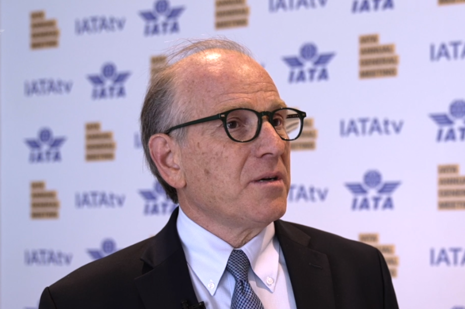
By Rafael Schvartzman, IATA Regional Vice President for Europe
While including some positive elements, the position on the EU-Emissions Trading Scheme (ETS) agreed by the EU Parliament today still risks destabilizing the hard-won international consensus for aviation carbon reductions. The EU will continue to apply the EU ETS solely to intra-EU flights, but a review will extend it to all flights into and out of the EU after 2026, unless the Carbon Offsetting and Reduction Scheme for International Aviation (CORSIA) is “positively evaluated”. This hijacks CORSIA, as well as creates potential competitive distortions to the market.
The ETS was designed as a mechanism for reducing emissions from mostly fixed installations within Europe. Applying it to a mobile, international business sector like aviation has always been controversial. Governments, including European governments, at the International Civil Aviation Organization (ICAO) have committed to ensuring the success of ICAO’s CORSIA as the single global market-based measure for reducing aviation emissions. This commitment was reinforced at ICAO just last year, where CORSIA’s baseline was modified with the support of the EU, to increase the level of ambition. In spite of this clear progress, the EU Institutions continue to put forward new elements to what they have already agreed, and this is not helping the global approach that this issue requires.
Airlines are concerned about the impartiality and objectivity of any review and evaluation the EU may undertake of CORSIA, given its long-standing preference for its own ETS. CORSIA has the ability to reduce emissions by far more than ETS on a global basis, and any collapse of CORSIA would have far-reaching consequences, not only for short-term emissions mitigation, but also on international cooperation on climate change and aviation’s ultimate path to net-zero emissions by 2050. Potential distortion of competition is another element of concern: in order to preserve the competition that all consumers benefit from, ETS should not disadvantage airlines from different regions.
Lastly, It remains a source of frustration that while European politicians grandstand over their ETS, practical measures that could be taken to reduce emissions, such as the Single European Sky, which would make European air traffic management more efficient and reduce emissions up to 10%, continue to be ignored.
On a positive note, we welcome the set-up of a pool of free allowances as a starting point to incentivize the uptake Sustainable Aviation Fuels (SAF) and the recognition by the EU for the need to bridge the price differential between fossil kerosene and SAF.
To conclude: It's essential that the EU drop the link between the scope of EU ETS and a set of unilateral “requirements” put on CORSIA. EU governments should stick to the commitments they have repeatedly made at ICAO, which is to make CORSIA a success and encourage its global adoption as swiftly as possible. Holding CORSIA hostage is failing in that duty.